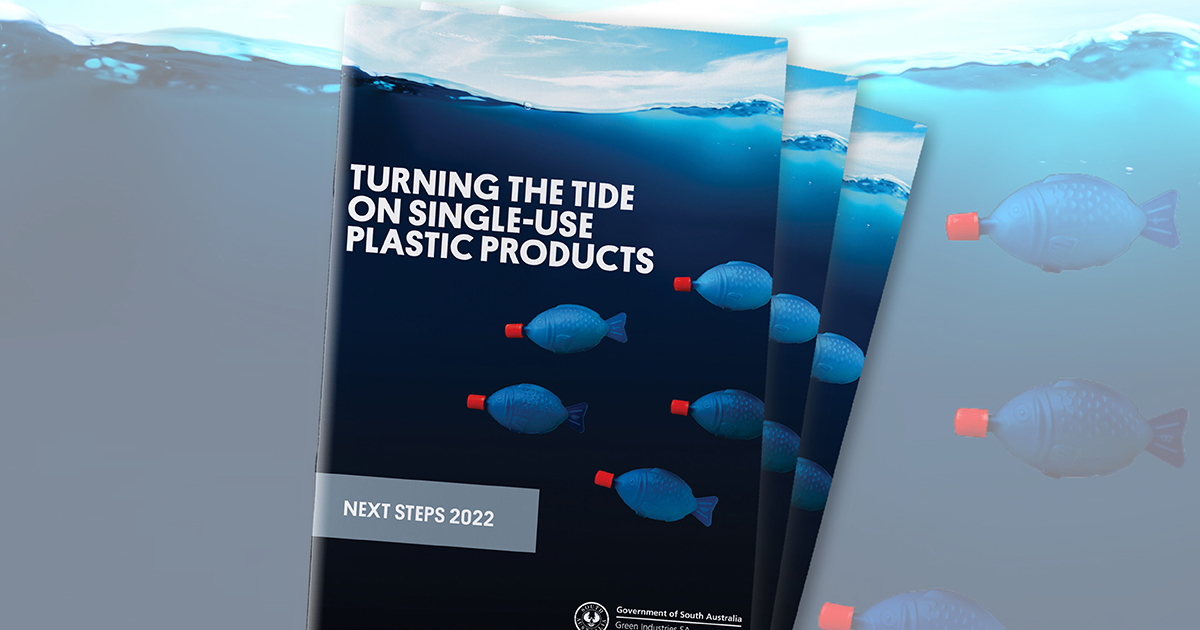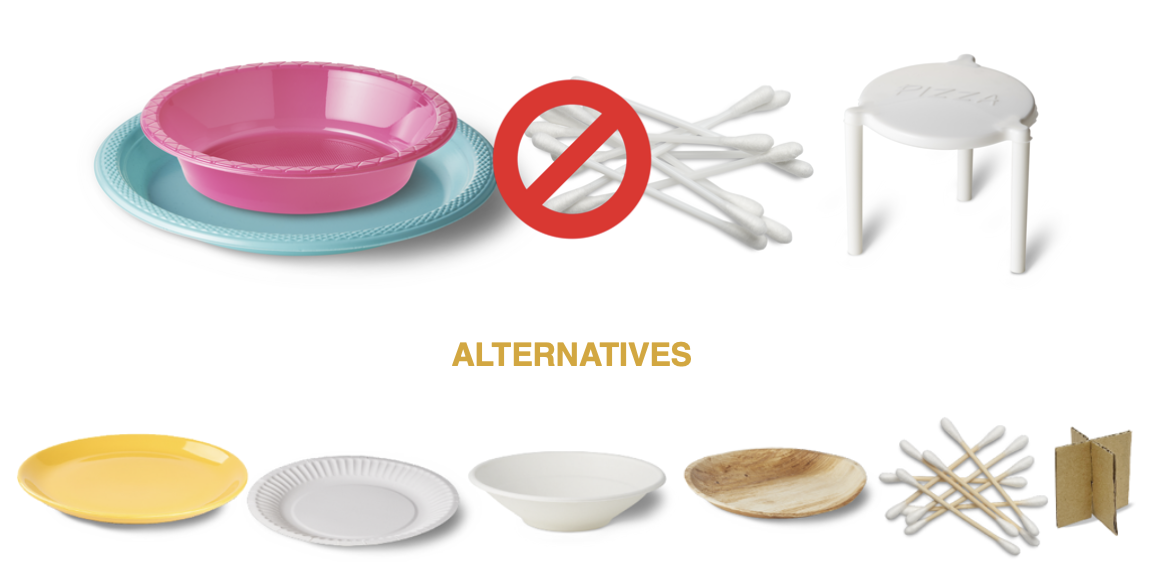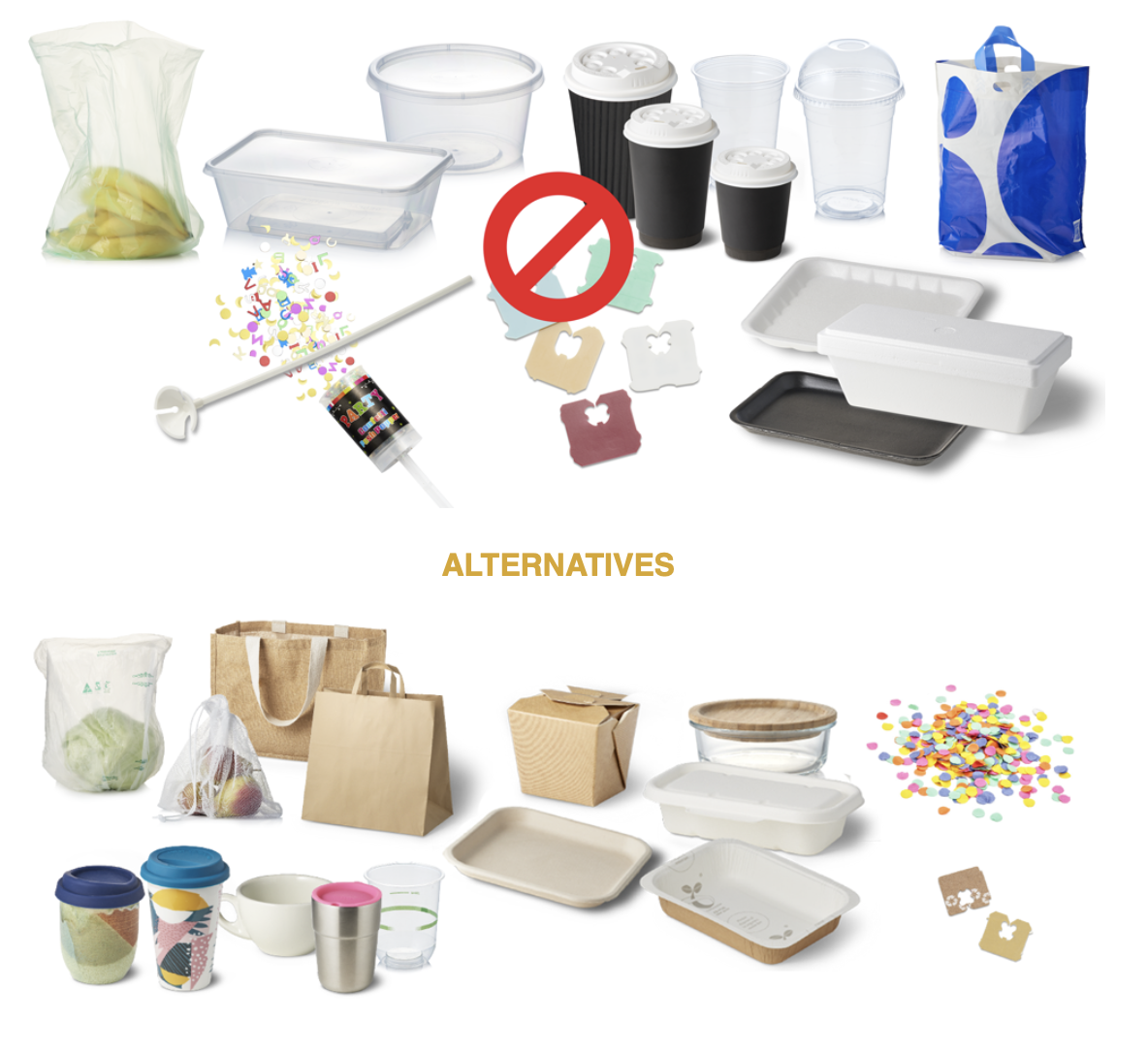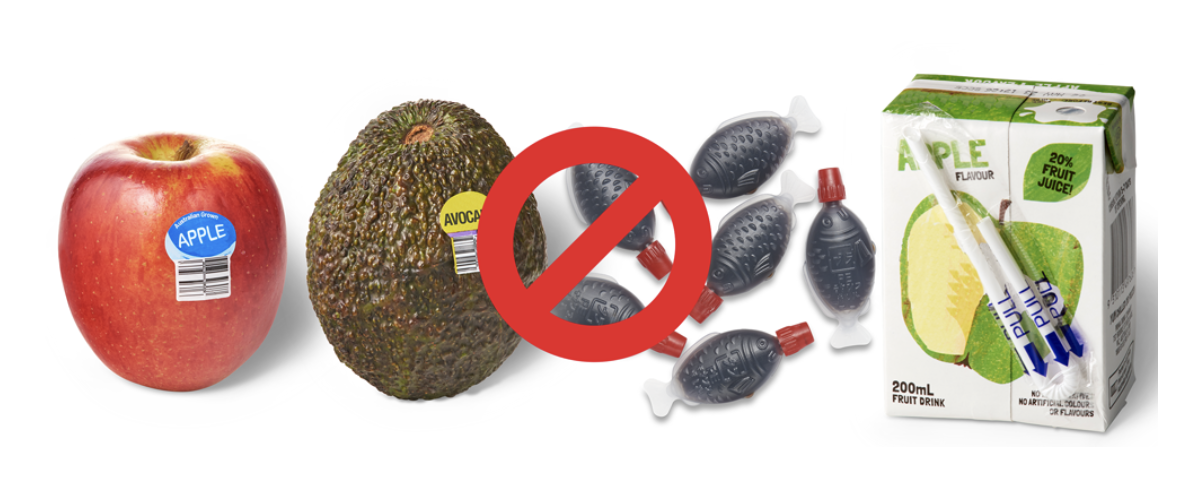SA brings forward timeline for single-use plastic bans
- Single-use plastics ban
November 04, 2022

South Australia is taking the next steps to replace the waste.
South Australians are committed to the environment and want action on single-use plastic products. By avoiding waste and shifting to reusable or recyclable options, we can ensure the best environmental outcome for our ‘clean and green’ state.
The next steps establish a phased and manageable move away from single-use plastics over the next three years, enabling all South Australians to replace waste by avoiding single-use plastics and adopting ‘clean and green’ alternatives.
From September 2023
Plastic stemmed cotton buds will be phased out and this aligns South Australia with other Australian states and territories, New Zealand and Europe. Exemptions, where plastic stemmed cotton buds are required for medical, veterinary, and other scientific purposes will be developed.

Single-use plastic bowls and plates will be phased out. Many suitable alternatives are already available, and bans are already in place in Queensland, New South Wales, and Western Australia.
Plastic pizza savers are difficult to recycle in conventional recycling facilities, and if left inside a cardboard pizza box they impact on the recyclability or compostability of the pizza box.
From September 2024
Plastic produce bags will be phased out enabling the market to switch to compostable alternatives, certified to Australian Standards for compostability [AS4736-2006 and AS5810-2010], aligning with and supporting our state’s efforts in recovering food waste from households. A major supermarket chain in South Australia, alongside some smaller supermarket stores, have already transitioned to these compostable produce bags. However, this is not the case for all businesses, and the timing of this ban allows them to transition to compostable produce bags and for suppliers of the bags to tool up, and for new compostable bag suppliers to enter the market.
Thick supermarket or boutique-style plastic bags will be phased out. There are alternatives for these kinds of bags and the timing of this ban allows retailers to source alternatives and inform customers.
Single-use plastic beverage containers (including coffee cups) offer convenience for consumers but, these items and their attachments (such as lids and beverage plugs) have limited recovery and recycling pathways, creating confusion for consumers. Some estimates suggest that Australians throw away up to 1 billion coffee cups a year. To tackle plastic pollution, business and industry must transition to more sustainable cups, lids and beverage plugs.
Fibre and other compostable, or non-plastic recyclable or reusable alternatives can replace single-use plastic food containers with various alternatives already available and in use.
Expanded polystyrene cups, bowls, plates and clamshell containers were prohibited from sale, supply and distribution in South Australia on 1 March 2022. Other expanded polystyrene (EPS) consumer food and beverage containers in the market (like certain ice cream tubs) will also be removed and complete the approach intended for this type of plastic. EPS trays used for meat, fruit and other food items for retail sale will be phased out. Alternatives exist and some major supermarkets are already transitioning to recyclable product trays. EPS is not recyclable through household kerbside collection systems and there are no alternative collection systems available.

Plastic confetti causes preventable damage to the environment and will be phased out in South Australia. The interpretation of what constitutes confetti will be defined in regulations to follow.
Plastic balloon sticks/ties will also be phased out.
Plastic bread tags can be replaced with non-plastic alternatives, as has already been introduced by at least one major bread producer.
From September 2025
Plastic fruit stickers, plastic soy sauce fish, and pre-packaged and attached products (products that have attached plastic straws or cutlery) are to be phased out.
For these products, industry needs time to design new, more sustainable product formats and implement alternative solutions.
For more details, visit www.ReplaceTheWaste.sa.gov.au





